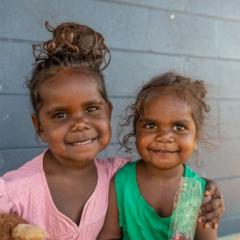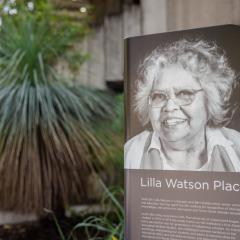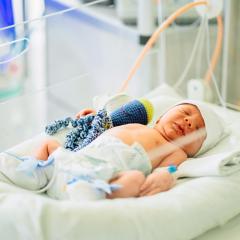A maternity program designed to achieve better health outcomes for Aboriginal and Torres Strait Islander women and their babies has received a $1.1 million grant from the National Health and Medical Research Council (NHMRC).
The project, led by The University of Queensland’s Professor Sue Kildea and researchers from the University of Sydney and the Institute for Urban Indigenous Health, will implement Birthing on Country on a number of sites with a view to an Australia-wide roll out.
The NHMRC grant will help determine the sustainability of a Birthing on Country service model in each community, along with the impact on Aboriginal and Torres Strait Islander women, their communities and health services.
“The Birthing On Country program has a strong emphasis on culturally and clinically safe care, strengthened support for families, growing a culturally capable workforce and the Indigenous maternal and infant workforce,” Professor Kildea said.
“This program focuses on the year before and the year after birth, as the most important time in life.
“It also allows us to review the effect on three of the most costly health outcomes across the lifespan for Aboriginal and Torres Strait Islander peoples: preterm birth, low birth weight and hospital admissions in the first year of life.”
Institute for Urban Indigenous Health CEO Adrian Carson said a key component of the project was the Indigenous control and governance of services.
“It is informed by Indigenous knowledge and community control with a redesigned health service to provide 24/7 continuity of midwifery care and birthing in an Indigenous birth centre,” Mr Carson said.
“With Indigenous leadership and a team with expertise in Indigenous health and research we can translate what we know works in other settings, and other countries, into practice here in Australia.”
Professor Kildea said the project team was calling on all Australian governments and health organisations to work with them to implement Birthing On Country programs.
“After two decades of research, including consultation with Indigenous elders and communities, we can now enact State and Federal health policy and put into practice national and international evidence of the safety, benefits and cost-effectiveness of culturally safe care,” she said.
“With Indigenous leadership and a team with a wealth of cross-disciplinary expertise in Indigenous and health services, we can translate what we know works in other settings and other countries into practice here in Australia.”
The project, entitled ‘Building on Our Strengths (BOOSt): Developing and Evaluating Birthing On Country Primary Maternity Units’, also includes the Aboriginal and Torres Strait Islander Community Health Service (ATSICHS) Brisbane, the Waminda South Coast Women's Health and Welfare Aboriginal Corporation, the Australian College of Midwives, the Congress of Aboriginal and Torres Strait Islander Nurses and Midwives, and the Rhodanthe Lipsett Indigenous Midwifery Charitable Fund.
The NHMRC grant builds on previous funding from the Ian Potter Foundation in Melbourne, the Institute for Urban Indigenous Health, ATSICHS Brisbane, the Mater Health Service, Queensland Health and an earlier NHMRC grant.
The NHMRC has this year awarded 33 grants worth a total $21 million to UQ. The latest round, including Professor Kildea's grant, was announced today. Details are here.
Media: Professor Sue Kildea, sue.kildea@mater.uq.edu.au, +61 3163 6388; Dani Nash, UQ Communications, dani.nash@uq.edu.au, +61 3346 3035.



